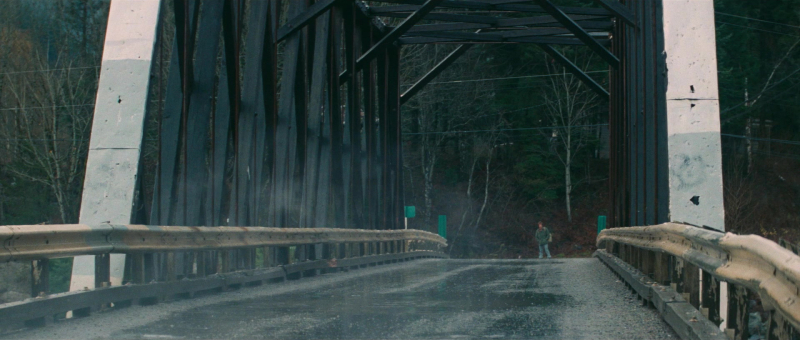 Please note that all framegrabs are from the 1080p version
Please note that all framegrabs are from the 1080p version
FIRST BLOOD
***½/**** Image A- Sound B+ Extras B+
starring Sylvester Stallone, Richard Crenna, Brian Dennehy, Bill McKinney
screenplay by Michael Kozoll & William Sackheim and Sylvester Stallone, based on the novel by David Morrell
directed by Ted Kotcheff
RAMBO: FIRST BLOOD PART II
**/**** Image B+ Sound B+ Extras B+
starring Sylvester Stallone, Richard Crenna, Charles Napier, Steven Berkoff
screenplay by Sylvester Stallone and James Cameron
directed by George P. Cosmatos
RAMBO III
**½/**** Image A- Sound B+ Extras A-
starring Sylvester Stallone, Richard Crenna, Marc de Jonge, Kurtwood Smith
written by Sylvester Stallone and Sheldon Lettich
directed by Peter MacDonald
“Hate war, but love the American warrior.”
-Lt. Gen. Hal Moore
by Bill Chambers I suppose I said it all in my previous review, but that was some sixteen years ago, and my feelings on the original Rambo trilogy have changed somewhat since then. I attribute this to age (if not maturity), evolving cultural attitudes, and 2008’s Rambo (hereafter Rambo IV), Sylvester Stallone’s powerful reclaiming of the character from the clutches of self-parody and blockbuster bloat. Rambo IV is essentially a stripped-down redux combining elements of the first three films; that there’s nothing particularly innovative about its plot isn’t, however, a commercial concession–what fans were really left to pander to, 20 years after Rambo III fizzled at the domestic box-office?–so much as it’s part and parcel of the movie’s thesis that Rambo’s singular talent for warfare, a blessing and a curse, will never be wasted in a world as shitty as ours. No matter how often or how hard he tries to drop off the grid. There’s a moment in Rambo IV where we hear his interior monologue as he forges himself a new blade: “War is in your blood,” he says. “When you’re pushed, killing’s as easy as breathing.” The tragic weight of these words ripples backwards across the franchise upon revisitation. For the lesser entries (the second and third films), I’d say it now counts among their redeeming qualities.

